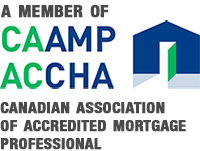


allJesse helped us to use the equity in our home to do some landscaping, build a fence and pay for our daughter's education. Even with a very low credit scores, he was able to give us a good mortgage rate. After 2 years our credit had improved and Jesse got us approved with a traditional bank and got us the lowest 5 year fixed rate in Canada. We are very impressed with his knowledge and services.
JESSE BRUN
Mortgage IntelligenceLicense #10428
Mortgage Broker (NB)
Mortgage Agent Level 2 (ON)

Home Refinance Bad Credit Saint John NB
Home Refinance with Bad Credit in Saint John, NB: A Guide to Home Equity Loans
If you're a Saint John resident with bad credit, you may feel that refinancing your home is impossible. However, our mortgage firm is here to help you understand the options available to you. In this article, we'll discuss home equity loans and how they can benefit you as a Saint John homeowner with bad credit.
What is a Home Equity Loan?
A home equity loan is a loan that allows you to borrow against the equity in your home. Equity is the difference between the value of your home and the amount of money you owe on your mortgage. For example, if your home is worth $300,000 and you owe $200,000 on your mortgage, you have $100,000 in equity.
Home equity loans are secured loans, which means that your home is used as collateral. This means that if you are unable to repay the loan, the lender has the right to foreclose on your home to recover their money.
Home Equity Loans vs. Home Equity Lines of Credit (HELOCs)
There are two types of home equity loans: home equity loans and home equity lines of credit (HELOCs). Both types of loans allow you to borrow against the equity in your home, but they work differently.
A home equity loan is a one-time loan that is paid back over a set period of time, usually between 15 and 30 years. You receive the entire loan amount upfront and pay it back in monthly installments. The interest rate on a home equity loan is typically fixed, which means that it will not change over the life of the loan.
A HELOC is a revolving line of credit that allows you to borrow money as you need it, up to a certain limit. You can borrow and repay the money as many times as you like during the draw period, which is usually 5 to 10 years. The interest rate on a HELOC is typically variable, which means that it can change over the life of the loan.
Why Refinance with a Home Equity Loan?
There are several reasons why you might consider refinancing your home with a home equity loan:
- Debt Consolidation: If you have high-interest debt, such as credit card debt or personal loans, you may be able to consolidate your debt with a home equity loan. This can lower your monthly payments and reduce the total amount of interest you pay.
- Home Improvements: A home equity loan can provide you with the funds you need to make improvements to your home. This can increase the value of your home and make it more comfortable for you to live in.
- Emergency Expenses: If you have unexpected expenses, such as medical bills or car repairs, a home equity loan can provide you with the funds you need to cover them.
- Lower Interest Rates: If you have high-interest debt, such as credit card debt, a home equity loan can provide you with a lower interest rate. This can save you money over the life of the loan.
How to Refinance with Bad Credit in Saint John, NB
If you have bad credit, refinancing with a home equity loan can be more difficult. However, there are still options available to you if you have sufficient equity in your home. Here are some steps you can take to improve your chances of being approved for a home equity loan:
- Check Your Credit Report: Before applying for a home equity loan, check your credit report for errors. If you find any errors, dispute them with the credit bureau.
- Improve Your Credit Score: There are several ways to improve your credit score, such as paying off debt, making payments on time, and keeping your credit card balances low.
- Consider a Co-Signer: If you have a co-signer with good credit, you may be able to increase your chances of being approved for a home equity loan. Our mortgage firm can also help you explore other options that may be available to you, even with bad credit. Contact us today at (888)878-4660 or fill out the short form on the top left-hand side of our website to learn more about how we can assist you with refinancing your home in Saint John, NB.
There are several benefits to using a mortgage agent for a home refinance.
- Access to Multiple Lenders: A mortgage agent works with multiple lenders and has access to a variety of mortgage products. This means that they can help homeowners find the best refinance options for their specific needs.
- Time-Saving: Refinancing a home can be a time-consuming process. A mortgage agent can handle the paperwork and negotiation on behalf of the homeowner, saving them time and stress.
- Competitive Rates: Mortgage agents have access to a wide range of lenders and can help homeowners find competitive rates for their home refinance. This can result in significant savings over the life of the mortgage.
- Stronger Negotiation Power: Mortgage agents have a strong understanding of the mortgage market and can negotiate with lenders on behalf of the homeowner to secure better terms and rates for the refinance.
- Personalized Service: Mortgage agents provide personalized service and work with homeowners to understand their unique needs and goals. They can help homeowners find the best refinance options that meet their specific financial situation. Flexibility: Mortgage agents can also provide homeowners with flexibility in terms of payment options and loan terms. They can help homeowners find refinance options that align with their financial goals and budget.
- Ongoing Support: A mortgage agent can provide ongoing support to homeowners even after the refinance is completed. They can help homeowners manage their mortgage and provide advice on future financial decisions.
- Reduced Risk of Rejection: Homeowners with bad credit or a low income may find it challenging to qualify for a home refinance on their own. Mortgage agents can help these homeowners find lenders who are willing to work with them, reducing the risk of rejection and increasing the likelihood of approval.
- Using a mortgage agent for a home refinance can provide homeowners with several benefits, including access to multiple lenders, expert advice, time-saving, competitive rates, personalized service, flexibility, stronger negotiation power, reduced risk of rejection, and ongoing support. These benefits can make the home refinance process smoother, more efficient, and more beneficial for homeowners.


